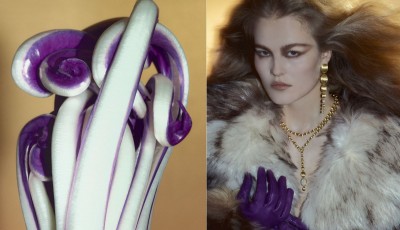Christina Fontana: Alibaba as a Digital Eco-System
China is the world’s main luxury market and over 100,000 Chinese consumers spend an average 159,000 dollars a year on the Alibaba platforms. Our interview to the Head of Fashion and Luxury Europe
“The Chinese consumer in the digital luxury era” was one of the main themes discussed at the Sole 24 Ore Luxury Summit last June. One of the speakers, Christina Fontana, Business Development Director for Alibaba Italia, gives us some comments.
Who is the Chinese consumer that buys a luxury product through your platforms?
When we speak of China, we should remember that it is the country with the highest number of internet users in the world: out of 1.4 billion people, over 800 million are connected to the Internet. Luxury consumers are, on average, 14 years younger than their European counterparts and 25 years younger than those in America (45% of them are under 35). They live in "tier-1" cities, are part of the growing middle class and are the world’s highest spenders (the number of wealthy consumers in China was 15 million in 2015 and it is forecast to rise to 33 million by 2020). The availability of some international brands through our platforms has given them access to the global world and modified the way in which they buy: they are looking for products that communicate the brand’s heritage, they adore personalization and are seeking a unique experience.
Alibaba and Made in Italy. What are the opportunities for luxury Italian companies?
We have been collaborating for years with leading brands from all over the world on our B2C Tmall platform. This is why, in 2017, we launched the Tmall Luxury Pavilion, an app within Tmall specifically for luxury brands that guarantees maximum control over brand image and customer experience. Since the end of 2018, the luxury brands on the Luxury Pavilion (almost 100) have had the chance to select the new Maison store format which lets them personalize their digital editorial content and showcase in order to reflect their tone of voice and heritage, as well as offering access to the most recent Alibaba technologies, such as the 3D pop-up shops that have already been experimented by, for example, Valentino. Marketing and communication activities are fundamental for getting the product known in China.
What are the characteristics of each of the Alibaba Group’s platforms?
Alibaba is an eco-system of marketplaces and various businesses fed by digital technology whose aim is to simplify commercial exchange and connect merchants and brands with consumers all over the world. The platforms are B2C, Tmall and Tmall Global as well as Alibaba.com which is B2B. Then there is Alipay, one of China’s most widespread smart payment solutions, managed by Ant Financial Services Group; AliExpress, the international retail marketplace through which buyers from all over the world can purchase products from local and Chinese merchants; Cainiao, the data platform for logistics that leverages on its partners’ ability to make large-scale transactions; Alimama which provides brands with marketing solutions to manage their own positioning and to calibrate their "marcomms" campaigns on the Alibaba marketplace and on third party websites and apps. Producers can find space on AliExpress to sell in Europe, Tmall or Tmall Global to sell to Chinese consumers or on Alibaba.com to find distributors all over the world
What is Tmall’s Luxury Pavilion business model?
It was launched in 2017 to meet the growing demand for premium and high-end products. According to McKinsey and Bain&co, between 2012 and 2018, Chinese consumers contributed to at least 2/3 of the world’s luxury goods consumption, a share that is destined to rise to 65% by 2025. Luxury Pavilion’s expertise and insights allow brands to create a personalized and exclusive customer experience for their audience. Customers can access pages and personalized offers, VIP membership, exclusive content, product information and innovative technologies, such as virtual and augmented reality.
What support do you offer Italian companies that express an interest in appearing on your platforms?
For a brand that would like to open its own store on Tmall, our B2C platform with over 650 million consumers, we recommend establishing a medium-to-long-term plan, conducting market research on the habits and tastes of Chinese consumers, getting an idea of the products that could be more relevant and investing in specific resources. Experience in export is required but, more than anything, brands must have an idea of their own positioning that they want to propose to the local market. In this context, Alibaba puts itself forward as a loyal partner along the entire value chain, from onboarding to the management of operations through supporting third parties, called TPs (Tmall Partners), which help brands and companies to manage their digital store.
Can you explain the buying dynamics?
When one speaks of China, it is well to bear in mind that consumers here are “mobile first”. According to market estimates, in China, online purchases from mobile phones will represent 74% of all-commerce by 2020. On the Alibaba platforms, transactions generated by mobile devices are about 90%. Furthermore, 65% of mobile users use their smartphones as their wallets and many of them never link up to a website.






